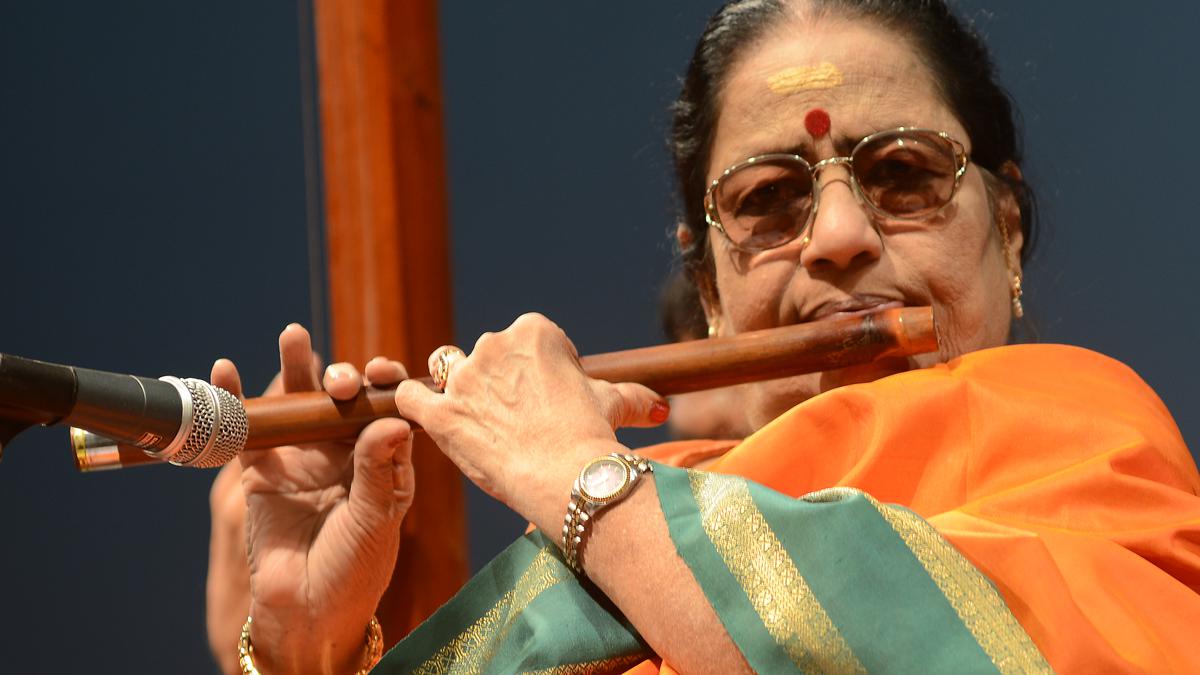
Sikkil Gurucharan’s heartfelt tribute to his guru and grandmother, Sikkil Neela
The Hindu
Vocalist Gurucharan’s Tribute to senior flautist Sikkil Neela
Sometime in 1985, Baby was baby-sitting a little boy while practicing something that came naturally to her — music! And the boy responded by singing the tunes that she played on the flute, before launching into a film song that was popular then. She was visibly elated and made an emphatic announcement that this boy shall learn to sing instead of playing the flute, the instrument that the family is popularly associated with.
Baby was better known as Sikkil N. Neela, one of the most underrated geniuses. And the little boy was me.
Neela ma, for those who didn’t know, was the younger of the Sikkil Sisters, probably the only female flautist duo in the country. Her music was feisty and boisterous whereas her sister Kunjumani’s was somber and structured reflecting their personalities, creating a complementing musicality that aligned perfectly . Mutual love, respect for each other’s music along with a healthy com-petitive spirit formed the crux of the solid bond that enmeshed the two sisters in a career spanning more than 60 years as award winning performers.
Neela’s portrayal of ragas like Natabhairavi, Karaharapriya, Kanada, Kapi, Sankarabharanam, Khamboji, Kedaragowla, Sindhubhairavi and Kalyani had a tinge of adventure with a unique aesthetic sensibility. There was tradition written all over, peppered with surprising sangatis and flourishes that seemed unimaginable. It would be more lakshya-based than lakshana, and that was something both sisters believed in. Whenever I asked her about a mind-boggling sangati she had played at a concert, she would shrug it off saying it just fell in place (amainjidhu). She believed in the gospel ‘we are mere players on this grand stage of life’.
After a concert early in my career, I euphorically announced to my family that I had sung well. She nodded and several hours later, gently grounded me saying, “Remember that the success of a concert is not yours alone to celebrate. Anything could have gone wrong today. Everything comes together by the grace of god. Your duty is to work harder and surrender to the music”. Realisation for me couldn’t have been more hard-hitting and subtle at the same time.
Having spent many afternoons with her, I was blessed to hear anecdotes about yesteryear stalwarts. One that comes to my mind is her recollection of Semmangudi mama’s breathtaking rendition of ‘Mārubalka’, with a flurry of brisk sangatis in the anupallavi. The audience was enraptured. She would say that an artiste should gauge the audience and know their pulse.
‘Arangisai’ on All India Radio at 8.30 a.m. was the alarm clock for her when she was in Madras. If she missed the announcement in the beginning, the guessing game would begin — first, the bāni that each performer belonged to and their musical background. She would intently listen to all the programmes, practice harder if it was inspirational and proceed to call the performers to convey her unbiased appreciation. A TDK 60-minute cassette would be readily placed in the tape recorder by her bedside that would record fresh ideas and thoughts.


